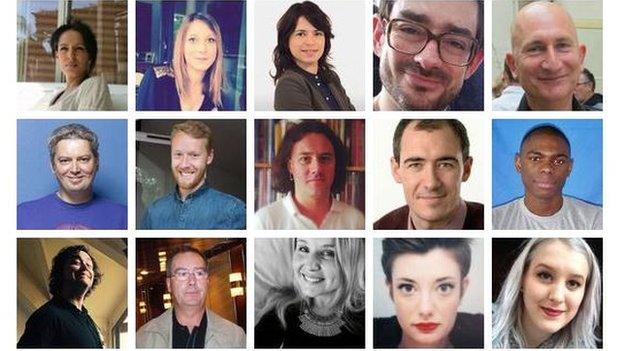Paris attack: 'I met murdered police officer at Bataclan'
- Published
Nick Garnett's interview with officer Xavier Jugelé in 2016
Xavier Jugelé, the French policeman murdered in Paris on Thursday, had been on duty in the aftermath of the attacks on the city in November 2015.
Furthermore, he had returned to the Bataclan music hall in Paris - where 89 people were killed - with a colleague last November on the night that the venue re-opened. While he was there, he spoke to BBC 5 Live's reporter Nick Garnett, who remembers meeting him.
I saw Xavier Jugelé's face on the BBC News website. I recognised him but could not place where I knew him from.
I read his name and then everything clicked into place. The Bataclan. Xavier Jugelé must have told me his name three times and I had misspelt it each time. It was a noisy concert venue. We laughed.
He took a pen and wrote his name in a notepad and turned it towards me. At first I had not recognised his face because the man in the photograph was in police uniform but there was something about his eyes. I remembered those.
At the Bataclan five months earlier, when I had met him, he had been relaxing with a drink, in his "civvies". Now he was dead, killed in the police van he was sitting in with his colleagues.
Unimaginable horrors
Mr Jugelé had gone to the Bataclan in November 2015, called in by his commanding officer in the aftermath of the attack on the venue - 89 people had died and scores more had been injured.
The streets were chaotic as the authorities tried to contain the situation and work out what was happening. The 37-year-old policeman had been one of many on duty that night, dealing with the unimaginable horrors on Paris's streets.
On one level, you might ask what are the chances of a police officer helping out at one tragedy to then be involved in a second one? In Paris, the odds on that are considerably shorter than they used to be, such has been the number and nature of threats to the city.
We do not know what officers like Mr Jugelé had to deal with on that night but 12 months later he had come to terms with what happened and what he had seen, and was back at the Bataclan as it re-opened.
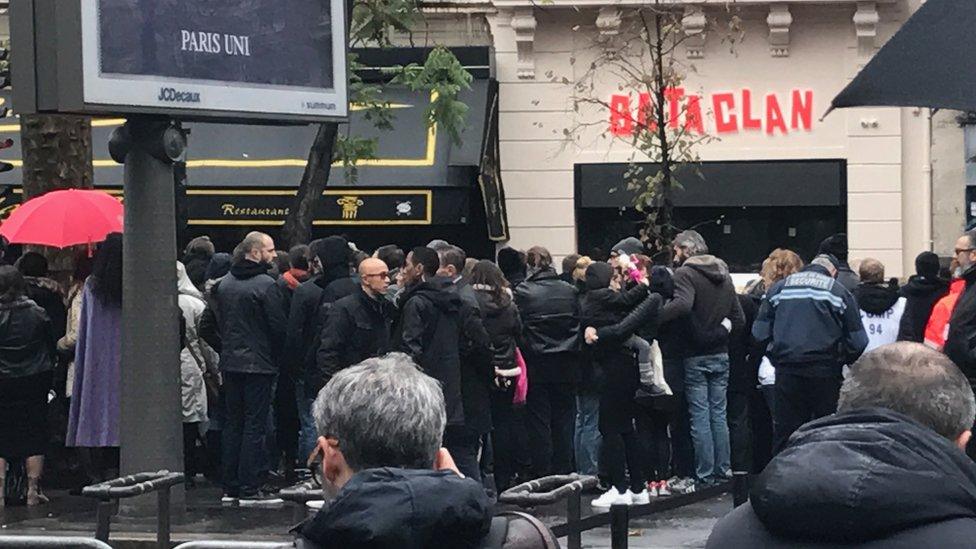
The Bataclan music hall in Paris re-opened in November 2016, a year after the deadly attack
I had gone to the concert hall to speak to Parisians returning to the venue a year on. Sting had been performing there.
Like gold dust
At the back of the venue stood a tall, relaxed man with short dark hair and a dark jumper. I approached him and introduced myself, delighted to learn that he spoke excellent English.
For a radio reporter on an English-language network, he was like gold dust. If he had been speaking in French, I would have had to get his words translated and it would have taken up valuable time. His English was so good that we are able to have a decent conversation, full of humour.
We talked for five to 10 minutes. A fellow reporter, Peter Mikelbank from People magazine, was with me. It emerged that Mr Jugelé was a serving police officer but we talked, almost exclusively, about his own experiences and reasons for being there.
He told us how he had been at the venue on the night of the attack and how he used to come to events and concerts at the Bataclan in the past, and how on this night he was there as a witness, not necessarily there just to see Sting in concert.
"I want to celebrate life and say 'no' to terrorism," he told me.
At the end of the interview, I leaned over to Peter and simply said: "That's the one I needed... I don't need to speak to anyone else."
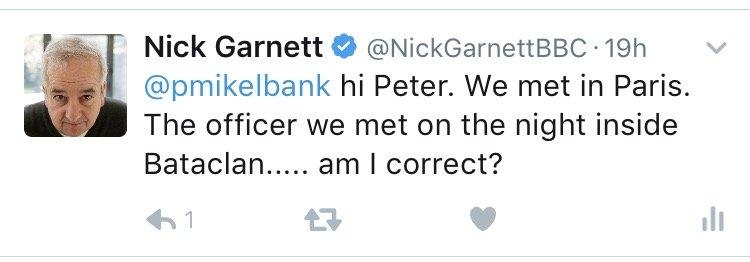
I went outside the theatre, filed my report and a few minutes later Mr Jugelé's words were broadcast on BBC 5 Live.
Five months later, and Peter and I messaged each other, late into the night. He rang me: he had found his notebook containing Xavier's handwriting, confirming that the murdered police officer was indeed the man we had spoken to.
We were both fairly quiet on the phone as it sank in.
The tragic coincidence is not that I once met Xavier Jugelé at a pop concert. It is that a police officer who had dealt with the aftermath of one appalling event in Parisian history has become the victim of another, killed whilst sitting with his colleagues in a police van.
- Published22 April 2017
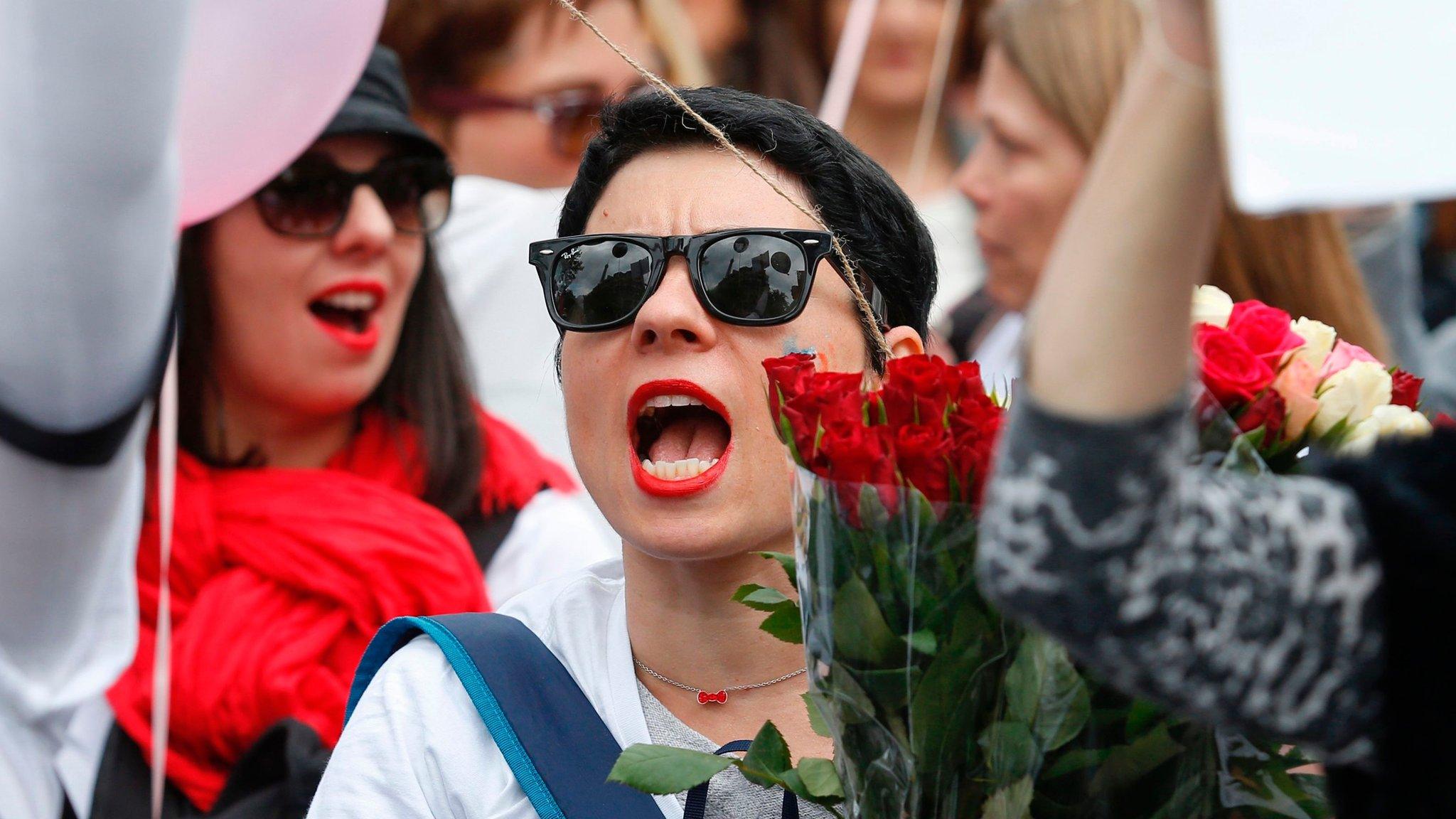
- Published21 April 2017
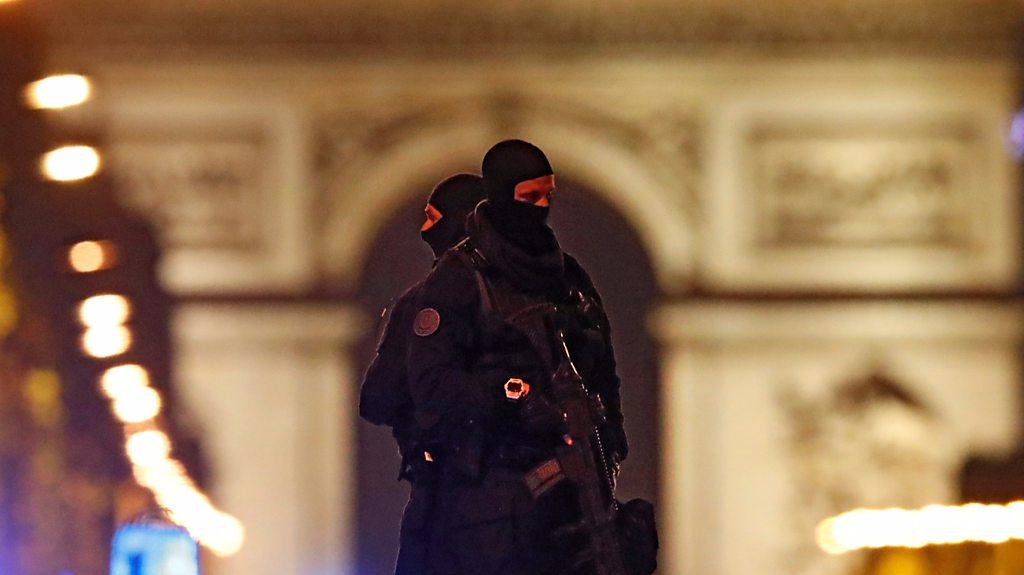
- Published21 April 2017
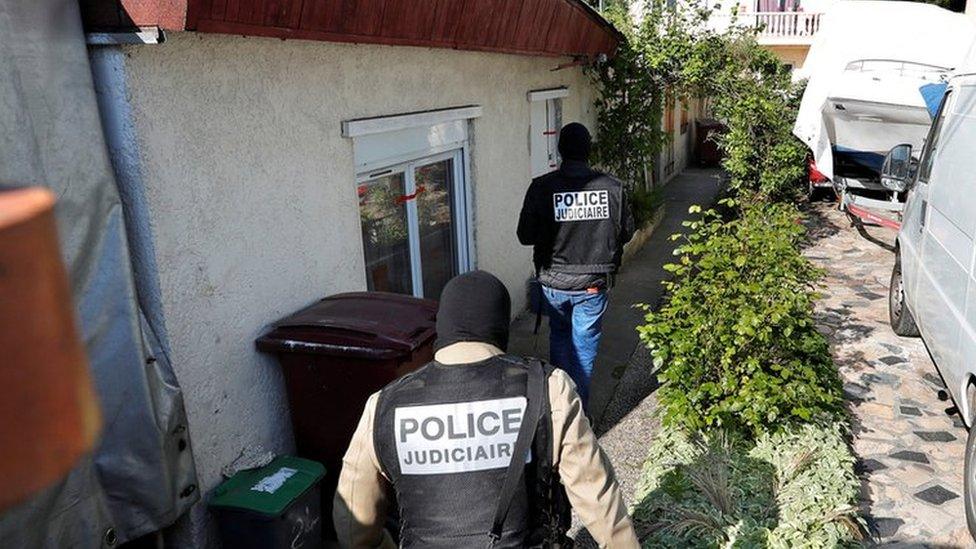
- Published10 November 2016
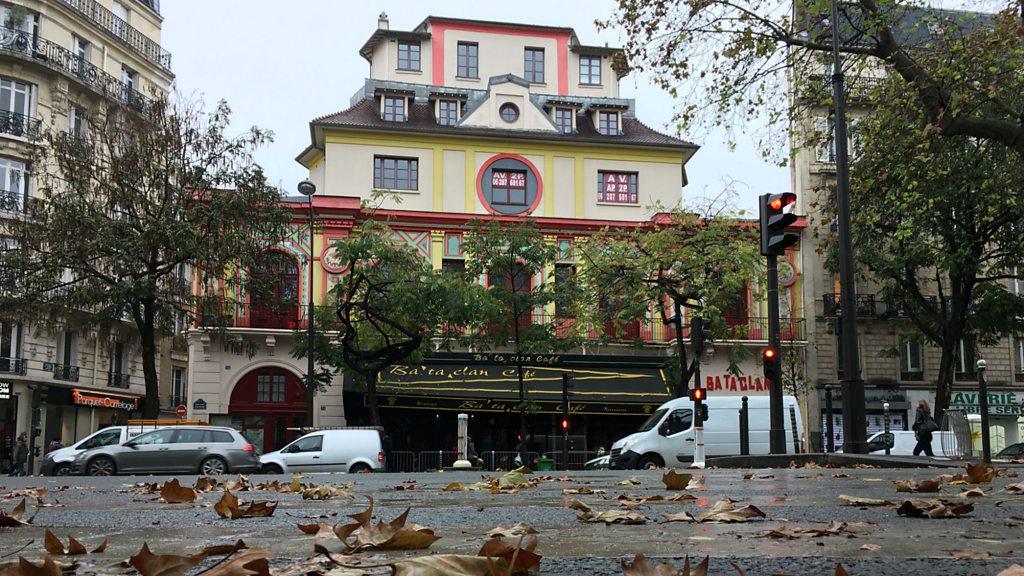
- Published27 November 2015
